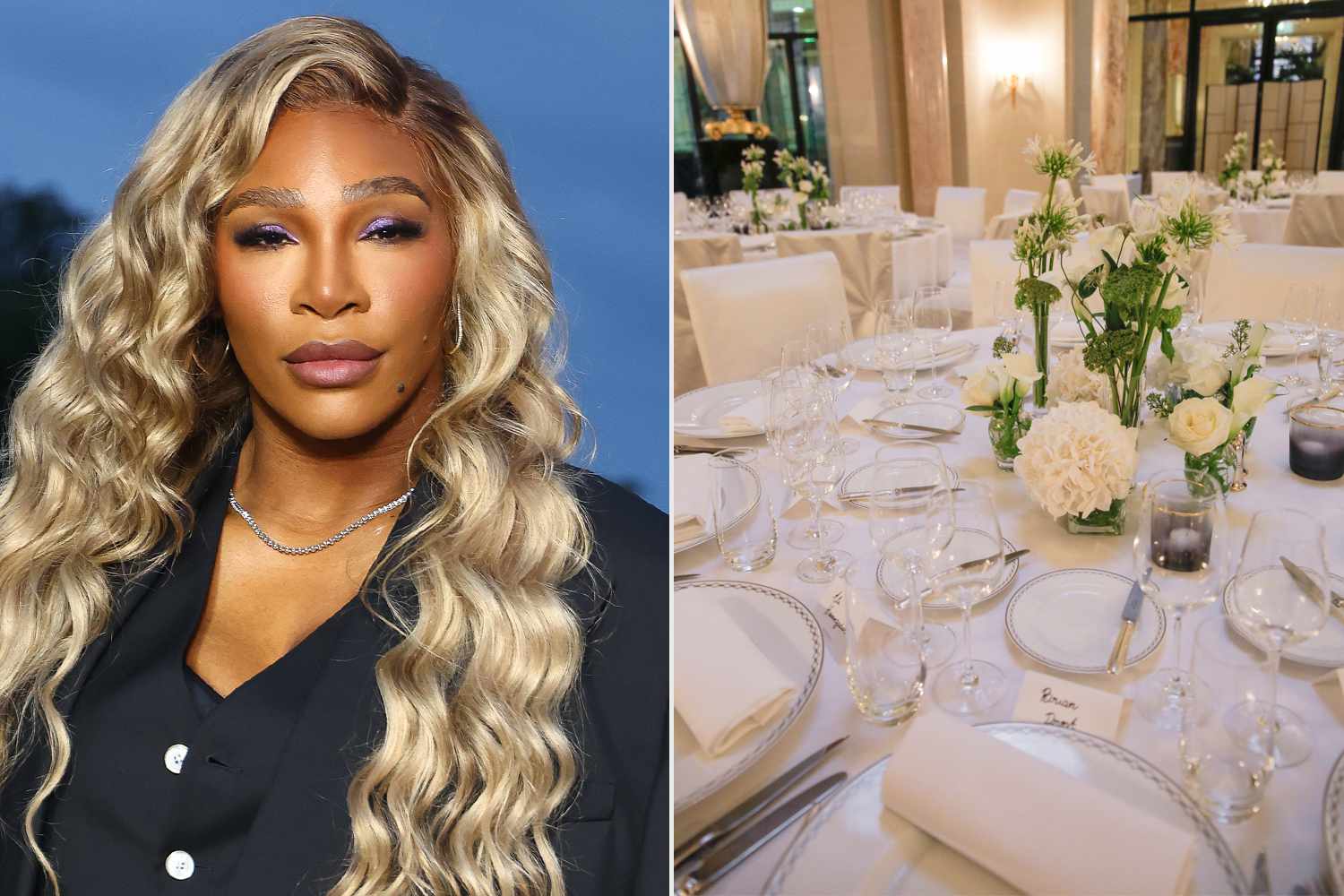(ThyBlackMan.com) Earlier today, Serena Williams took to social media to express her frustration after being denied access to a five-star rooftop restaurant in Paris, France. The tennis superstar, known for her unparalleled achievements on the court and her advocacy off it, was seemingly left bewildered and disheartened by the experience. In a series of posts, she called out the Peninsula Paris, bringing to light a broader issue that has occasionally reared its head in the city of lights – the subtle, and sometimes not-so-subtle, exclusion of black celebrities from high-end establishments.

Serena Williams: A Tennis Legend and Cultural Icon
Before delving into the incident, it’s essential to understand who Serena Williams is and the magnitude of her influence. Born on September 26, 1981, in Saginaw, Michigan, Serena Jameka Williams has become a global icon, transcending the sport of tennis. She has won 23 Grand Slam singles titles, the most by any player in the Open Era, and has been ranked world No. 1 in singles by the Women’s Tennis Association (WTA) on eight separate occasions between 2002 and 2017.
Williams’ journey to the top of the tennis world is a story of grit, determination, and resilience. Coached by her father, Richard Williams, alongside her sister Venus, Serena emerged from the public courts of Compton, California, to dominate the traditionally white and elitist sport of tennis. Her powerful playing style, characterized by aggressive baseline play, relentless athleticism, and mental fortitude, revolutionized the women’s game and inspired countless young athletes around the globe.
Off the court, Serena Williams is a businesswoman, fashion designer, and philanthropist. She has her own clothing line, S by Serena, and has invested in various startups through her venture capital firm, Serena Ventures. Williams is also an advocate for social justice, using her platform to speak out against racial and gender inequality. Her journey and success story have made her a role model for many, embodying the message that with hard work and determination, barriers can be broken, and ceilings can be shattered.
The Paris Incident: A Clash at the Rooftop
Serena Williams’ recent ordeal in Paris has sparked conversations about celebrity treatment, cultural differences, and, regrettably, racial insensitivity. The incident occurred at the Peninsula Paris, a renowned five-star hotel known for its luxurious accommodations and exquisite dining experiences. Williams, along with her family, attempted to dine at the hotel’s exclusive rooftop restaurant, L’Oiseau Blanc, only to be turned away.
“Yikes @peninsulaparis,” she wrote on Monday. “I’ve been denied access to the rooftop to eat in an empty restaurant of nicer places ? but never with my kids. Always a first. ?#Olympic2024. You’re Really Gonna Reject Me?!?!”
The post quickly went viral, with fans and followers expressing their outrage and disappointment. Many questioned how one of the most recognizable athletes in the world could be denied access, speculating about the underlying reasons behind the snub.
Restaurant’s Response: An Apology and an Explanation
The restaurant was swift to respond to the backlash. In a public statement, they extended an apology to Serena Williams, explaining the situation and attempting to clarify the misunderstanding.
“Dear Mrs. Williams,” they wrote. “Please accept our deepest apologies for the disappointment you encountered tonight. Unfortunately, our rooftop bar was indeed fully booked, and the only unoccupied tables you saw belonged to our gourmet restaurant, L’Oiseau Blanc, which was fully reserved.”
Maxime Mannevy, a worker at the Peninsula’s rooftop restaurant, spoke with Variety to provide further context. According to Mannevy, the staff member who interacted with Williams did not recognize her and was merely following standard protocol.
“When she came there were only two tables available, and they had been reserved by clients of the hotel,” said Mannevy. “My colleague didn’t recognize her and feels terrible, but he told her what he would have told any other client, which is to wait downstairs in the bar for a table to become available. That was absolutely nothing personal.”
Despite the apology, the incident has reignited discussions about the treatment of black celebrities in Paris, a city with a complicated history regarding race and exclusivity.
A Troubling Pattern: Black Celebrities and Parisian Exclusion
Serena Williams’ experience is not an isolated case. Over the years, several black celebrities have reported similar treatment at high-end establishments in Paris. These incidents have raised concerns about underlying racial biases that persist in some of the city’s elite circles.
One notable instance involved Oprah Winfrey, who, in 2013, was refused service at a high-end boutique in Paris. Winfrey recounted that a sales assistant had told her that a handbag she was interested in was “too expensive” for her, an encounter that left the media mogul feeling humiliated and marginalized. The store later issued an apology, but the incident underscored a troubling trend.
Similarly, rapper and entrepreneur Jay-Z has spoken about feeling unwelcome in certain Parisian establishments. In a 2017 interview, he recounted an experience at a nightclub where he was denied entry despite having a reservation. Jay-Z attributed the incident to racial profiling, emphasizing that wealth and fame do not always shield black individuals from discrimination.
These experiences highlight a broader issue within Parisian society, where black celebrities, despite their status, continue to face barriers and prejudices that their white counterparts often do not encounter. While some may argue that these incidents are isolated and not indicative of systemic racism, the frequency and consistency of such reports suggest otherwise.
The Broader Implications: Racism and Exclusivity in Elite Spaces
The exclusion of black celebrities from high-end establishments in Paris reflects a deeper, more pervasive issue of racism and exclusivity within elite spaces. These incidents are not merely about individual snubs but point to a broader cultural problem where black individuals are often perceived as outsiders, regardless of their achievements or status.
In the world of luxury and high society, where image and perception are paramount, black celebrities often find themselves subjected to scrutiny and skepticism. This treatment underscores a reluctance to fully embrace diversity and inclusion within these spaces, perpetuating a cycle of exclusion and marginalization.
The impact of these experiences extends beyond the celebrities themselves. When prominent black figures face discrimination, it sends a message to the broader black community about their place and acceptance within society. It reinforces the notion that no matter how successful or famous one becomes, racial biases can still undermine their dignity and respect.
Serena’s Call for Change: A Catalyst for Conversation
Serena Williams’ decision to speak out about her experience is a powerful reminder of the importance of using one’s platform to advocate for change. By publicly addressing the incident, Williams has sparked a necessary conversation about the treatment of black individuals in elite spaces and the need for greater awareness and accountability.
Her outspokenness serves as a call to action for other celebrities and influencers to share their experiences and challenge the status quo. It also highlights the need for institutions and establishments to re-evaluate their policies and practices to ensure they are inclusive and equitable for all.
As the world moves towards greater diversity and inclusion, it is crucial that elite spaces reflect these values. The hospitality industry, in particular, must prioritize training and education to combat racial biases and foster a culture of respect and equality. By doing so, they can create environments where all guests, regardless of their background, feel welcome and valued.
A Step Towards Progress
The incident involving Serena Williams at the Peninsula Paris is a stark reminder of the ongoing challenges faced by black celebrities in elite spaces. While the restaurant’s apology and explanation provide some context, they do not erase the broader implications of such experiences.
Serena Williams’ resilience and advocacy serve as an inspiration for many, and her willingness to address these issues publicly is a step towards progress. It is a call for greater awareness, empathy, and action to ensure that all individuals, regardless of their race, are treated with the dignity and respect they deserve.
As conversations about diversity and inclusion continue to evolve, it is essential that society listens to and learns from these experiences. Only then can we move towards a world where everyone, regardless of their background, feels a sense of belonging and acceptance.

















First of All, Why do Successful black men, women, LGBT are always so desperate to travel to a country or a land that is the birth place of the Racist Slave masters who enslave, rape, lynch, sodomy, poison, killed, murder millions of Africans who were brought here to America and whose descendants are the African Americans which are the result of slavery in the Americas.
Why do you African Americans who are athletes, Musicians, Artist are so desperate to let a white men sticks his little penis inside of you and or why do you want to stick your well endowed penis inside a She devil’s infected with racism Vagina. I don’t Understand our black community. Why are you upset about a racist white men or white women not letting you inside their restaurants knowing that these people usually spits and defecates on the food of all black people that come to eat at their restaurants.
Maybe you African Americans do not know this, but when you go to eat at a restaurant or a fast food joint owned by a Hispanic, Asian, white, Untouchable, Armenian, Middle eastern etc.. they really do not want you there but they do want your money, so they can use it to help their people and their children. Indeed, when you as a black men, black women and black LGBT eat at a restaurants or fast food place owned by another race and who employed their own people; in your neighborhood, they are putting poison, saliva, sperm, feces, pubic hair, trash, dust, lint and everything they can think of in your food. So when you are eating their food, you are actually poisoning yourself and they masked the taste and smell of the food by putting extra salt, sugar and black pepper in your food, so you will not notice or taste the saliva, urine, semen, feces etc.,, that they put in your food.
Now, when Hispanics Mexican, Puerto Ricans, Dominicans in America become successful they only spend their money in stores owned by Hispanics and they only visit the country where their parents were born. When Asians either Chinese, Philippines, Cambodians etc.,, become successful in America they only spend their money in Asian stores and they only travel to the countries of their parents. When middle eastern become successful in America they only spend their money in middle eastern stores and they travel back to their middle eastern countries which is the birthplace of their parents.
Now, when dumb African Americans becomes successful the first thing they want to do is travel to Europe and stay in a white hotel and eat in white restaurants alongside white people and spend all their money on white people products and businesses, So the question is what in the Frack is wrong with Successful black people like Serena Williams.? What is wrong with Black people, in the name of God, that is the reason why no other race respect us and laugh at us whenever they see us, because they understand that black people are in love with the children of their former Slave masters that killed, lynched, rape and sodomy the their African ancestors in America between thy years of 1619’s to 1950″. Even, as of 2024, black girls in the south are been rape by white supremacist and black men are been found hanging from threes all over the south and in many parts of West Virginia.
Damm it black people, Wake the Frack up! stop the kumbaya with these demonic evil two face white people that speak with a fork tongue. Stop traveling to Europe, stop eating at white people restaurant, stop spending your money in stores owned by whites, Asian, Hispanics, middle Easterns etc… Instead, all successful African American must travel to African and visit the Country of Ghana, where the African slaves were put in dungeons before the long voyages through the rough seas to America, invest in motherland African, invest in our black children and their future, open black factories to employed black men, women and LGBT, open black vocational schools and trades to teach our young black boys, girls, etc. to become independent contractors, mechanics, carpenter, electricians, plumbers, gardeners, landscaping, coding, etc.. it is time for successful black women like Serena Williams to invest in black businesses and to hire black people and to eat and support black restaurants.
More so, invest in black owned businesses, spend your money in black restaurants and support your black community with our black dollars, put your money in black owned banks, send your kids to black schools and HBCU;S. Lets, built another black wall street in several selected states with a large majority of black residents which will give us the power to govern ourselves without the intervention of racist white people.
It is not surprising that Serena Williams chose to address this issue publicly, as it is essential to call out ongoing racism. France continues to exert influence in Africa, with many former colonies still paying France in minerals, despite their citizens often facing severe poverty and starvation. Nevertheless, many Black American celebrities continue to visit the country.
When it comes to racism, France is almost identical to America when it comes to its treatment of blacks. Both countries are white supremacist, white privileged,nihilist, existential, autocratic minded political entities who, like America, was kicked out of Vietnam for our racist, and insensitive attitudes towards the Vietnamese people.Neither France nor America has been willing to relinquish its antiquated, unwanted, western world colonialist political world views, and subsequent attitudes towards blacks,yellows, red,and browns.